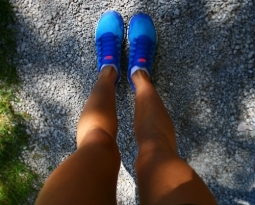+Check your feet daily
+Wear proper fitted shoes
+Wear shoes with a firm sole and soft upper for daily activities
+Avoid constricting garters, pantyhose or stockings
+Do not cut or shave corns or calluses
+Consult with a podiatrist before using any over-the-counter foot product, if you notice any redness, swelling, cracks in the skin or sores.
+Soak your feet in warm water daily (we recommend Epsom salts once or twice a week)
+Dry feet completely and moisturize daily
+Change your socks daily
+Trim or file toenails straight across
+Have your feet examines by a podiatrist at least twice a year
+Buy the correct shoe size – we recommend you get them measured
+Gently stretch your shoes before wearing (you can use a thick pair of socks to expand the leather or visit a cobbler to stretch them professionally)
+Wear new shoes around the house for at least one hour
+Healthy feet should not hurt – tight shoes worsen Bunions, distort toe shape and cause painful foot growth.
High heels should have a wide toe box and stable.
+Flip flops and flat shoes do not provide arch support and can lead to flat feet and other foot problems
+Factors that affect your feet include:
Pregnant women – should wear shoes with broad heels, arch support and good shock absorbency. Added pregnancy weight may cause your shoe size to change.
Older women – lose fat padding under the feet. Choose shoes that provide more shock protection.
Diabetic women – can develop serious conditions in their lower extremities so its important to check for any problems daily and to see a podiatrist at least once a year. Be cautious about pedicures at nail salons.



Hello! Cool post, amazing!!!